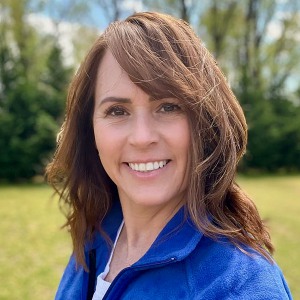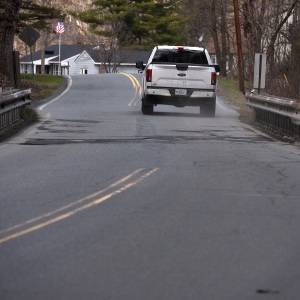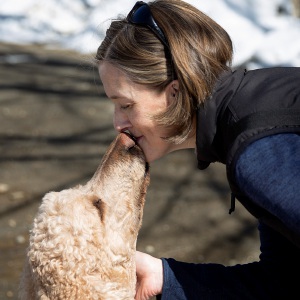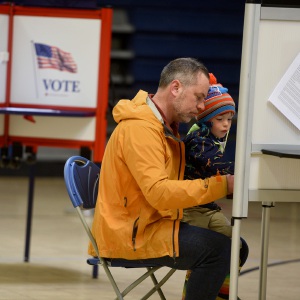Lebanon meeting on policing policy ends in shouting match
| Published: 03-05-2020 10:47 PM |
LEBANON — A meeting intended to clear the air on immigration-related issues in Lebanon ended Wednesday night with a tense exchange between the mayor and a leading activist who clashed over whether — and to what extent — local police cooperate with federal immigration authorities.
The nearly two-hour discussion during the City Council meeting over current police policy came to a close with shouting from both sides and a short-lived order for officers to remove the activist from the room.
The exchange came as Asma Elhuni, a Hartford resident who helped form the organization Rise! Upper Valley and has been active on the immigration issue in several towns, accused Lebanon police of “collaborating” with U.S. Customs and Border Protection.
Her concerns come ahead of a city vote next week on a proposed “Welcoming Lebanon” ordinance that would prevent police from working alongside or sharing immigration-related information with federal authorities.
Several times, Elhuni called on Lebanon police to thwart Border Patrol officers from “kidnapping” undocumented immigrants.
“You’re not understanding. This is unsafe for us. You are assisting Border Patrol,” Elhuni told the nine-member City Council.
That’s when Lebanon Mayor Tim McNamara attempted to cut her off.
“That is your opinion, ma’am. Please sit down,” he said.
Article continues after...
Yesterday's Most Read Articles
 Starbucks store planned for Route 120 at Centerra
Starbucks store planned for Route 120 at Centerra
 Canaan Elementary School has new principal
Canaan Elementary School has new principal
 City plans to widen and replace bridge on Trues Brook Road
City plans to widen and replace bridge on Trues Brook Road
 Enterprise: Upper Valley pet sitters discuss business growth, needs
Enterprise: Upper Valley pet sitters discuss business growth, needs
 2024 Upper Valley high school baseball guide
2024 Upper Valley high school baseball guide
Elhuni declined and attempted to continue speaking as McNamara repeatedly said “sit down,” with both of their voices rising.
“I’m not going to say it again,” McNamara said before pausing briefly. “Sit down!”
Elhuni continued to speak, prompting McNamara to call on two uniformed police officers seated the in back of the room — Deputy Police Chief Phillip Roberts and Lt. Matthew Isham — to “assist this lady from the room, please.”
Both officers stood up and made it about halfway to Elhuni before she backed down, saying, “You are assisting Border Patrol,” one last time while withdrawing from the microphone.
At the same time, city councilors and City Manager Shaun Mulholland attempted to ease the situation.
“People are allowed to have their opinion for three minutes and I think if she wants to yell at me for three minutes, I can take it,” said Councilor Karen Liot Hill.
Liot Hill went on to say she isn’t “OK” with a Border Patrol checkpoint set up on Interstate 89 this summer, nor using city resources to mitigate related costs, such as traffic control. But until federal law changes, she said, police should prepare for such events and mitigate traffic and safety issues, even if that means communicating with the federal agency.
Police Chief Richard Mello said on Wednesday that Customs and Border Protection informs him ahead of enforcement activity in Lebanon as a “courtesy,” adding he uses the information to better plan for increased traffic and staffing to respond to protesters.
“When I got up, I wanted him to know how disturbing it is that his officers are at checkpoints,” Elhuni said after the meeting, repeating assertions that Lebanon police were present as the checkpoint was set up. (Mello says his records don’t reflect that claim.)
“We’re not here to say the police chief is bad, but we’re here to say that police accountability is necessary,” she added.
McNamara apologized during the meeting for his “outburst.” In an interview after the meeting, he expressed frustration that a discussion on police policy turned into “a philosophical diatribe.”
“Did I lose my temper? Yes, I lost my temper. Should I have? No, I should not have,” he said. “But this went from beyond the proposed ordinance and questions about how we do our policing to very strong philosophical positions, and that’s not what tonight was for.”
Wednesday’s meeting was initially meant to answer questions about the welcoming ordinance’s effect on the Lebanon police department, which has relied on federal grants for some staffing, and to answer questions about current police practices. Along with forbidding communication between Lebanon police and immigration officials, the measure also would prohibit local officers from detaining people for immigration law violations or allowing federal immigration officials to interview those in Lebanon police custody.
The police department, Mello said, has often been inaccurately portrayed during discussions surrounding the ordinance.
For instance, while Lebanon police don’t investigate immigration status or enforce immigration laws, they may ask where a person is from while attempting to identify them during a traffic stop, he said. During the booking process, police who are dealing with the department’s fingerprint system do inquire about the “country of citizenship” of a person being taken into custody, Mello wrote in a memo ahead of the meeting. The records system, which uses questions determined by the FBI, also asks for country of birth.
Although that could draw the attention of federal authorities, “the Lebanon Police Department does not further inquire of immigration status and does not use this information in an attempt to track or determine an individual’s immigration status,” Mello wrote. “There are no plans or intentions of tracking immigration status now or in the future.”
In the last four years, one person who was arrested by Lebanon police was handed over to immigration authorities after a routine record check flagged the person to the Department of Homeland Security. Homeland Security officials contacted Lebanon police in that instance, not the other way around, Mello said.
In the same time frame, the police department hasn’t received a single complaint about racial profiling or biased policing, something the Welcoming Ordinance seeks to curtail, Mello said.
However, advocates pointed out that undocumented immigrants might be afraid to complain, fearing they may be deported or singled out for enforcement actions. Several people also called for an ombudsman-style position who could take complaints and act as an unbiased arbiter on police issues.
“It would be great if there was somebody who was perceived and experienced as more neutral, whose job isn’t to make a judgment about it but to be a conduit,” said West Lebanon resident Diane Root.
Mello responded by saying that people can go to Mulholland, the city manager, with concerns they may not feel comfortable expressing to police. City councilors also offered to take queries from Lebanon residents fearing reprisal.
Voting on the welcoming ordinance, which unlike measures passed this week in Hartford and Norwich is not advisory and would take effect in January if passed, will take place between 7 a.m. and 7 p.m. on Tuesday, March 10, at Kilton Public Library in West Lebanon (Ward 1), United Methodist Church (Ward 2) and AVA Gallery & Art Center (Ward 3).
People can find out more about the ordinance at the city’s website, Lebanonnh.gov.
Tim Camerato can be reached at tcamerato@vnews.com or 603-727-3223.

 Hartford voters approve school budget and building repair bond
Hartford voters approve school budget and building repair bond
